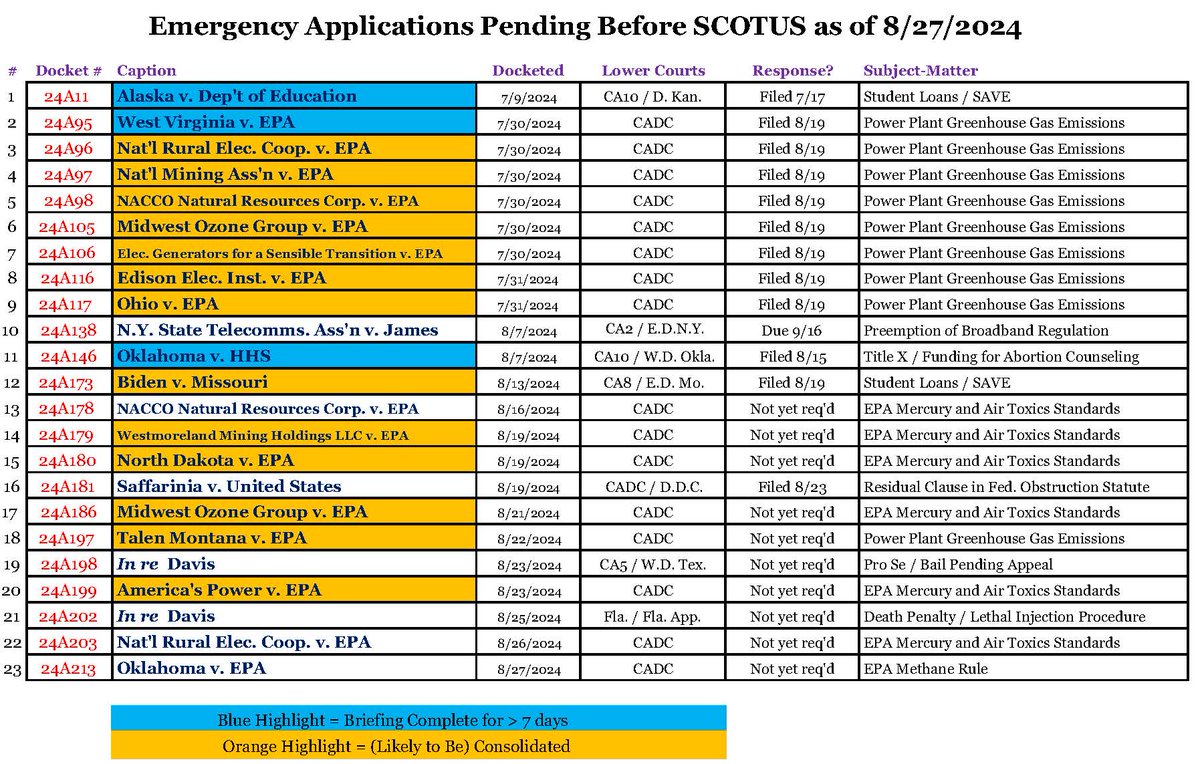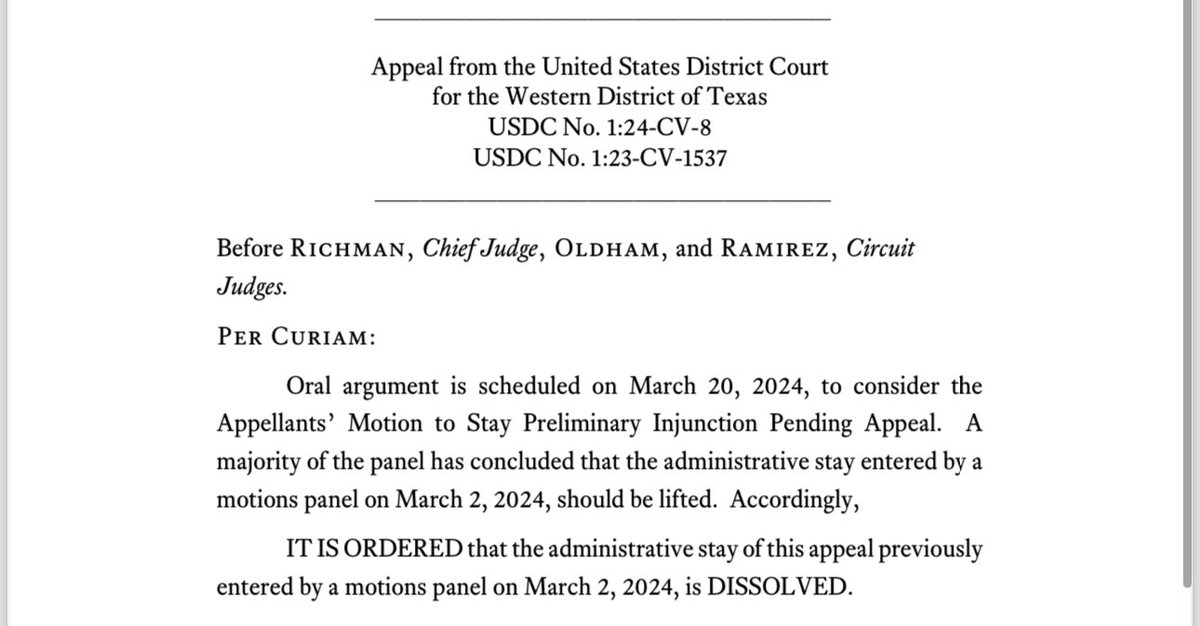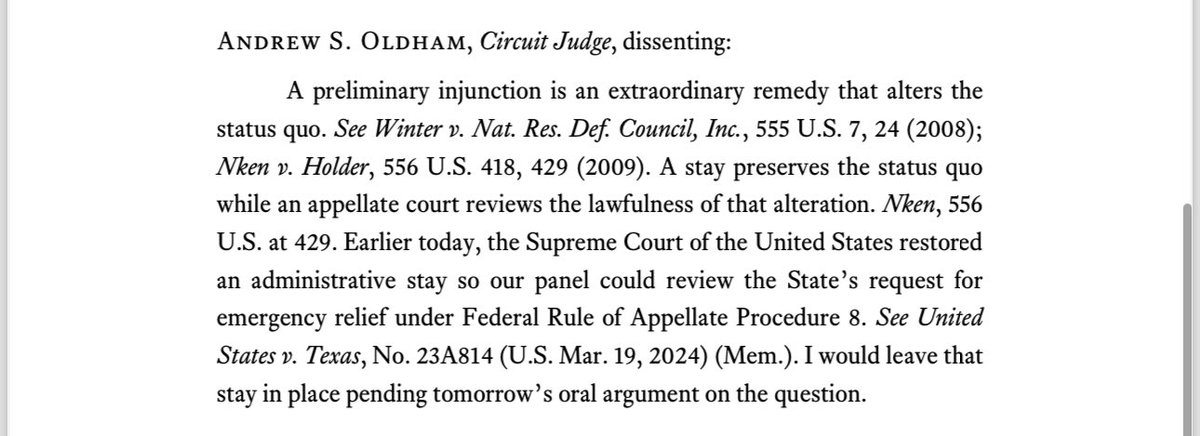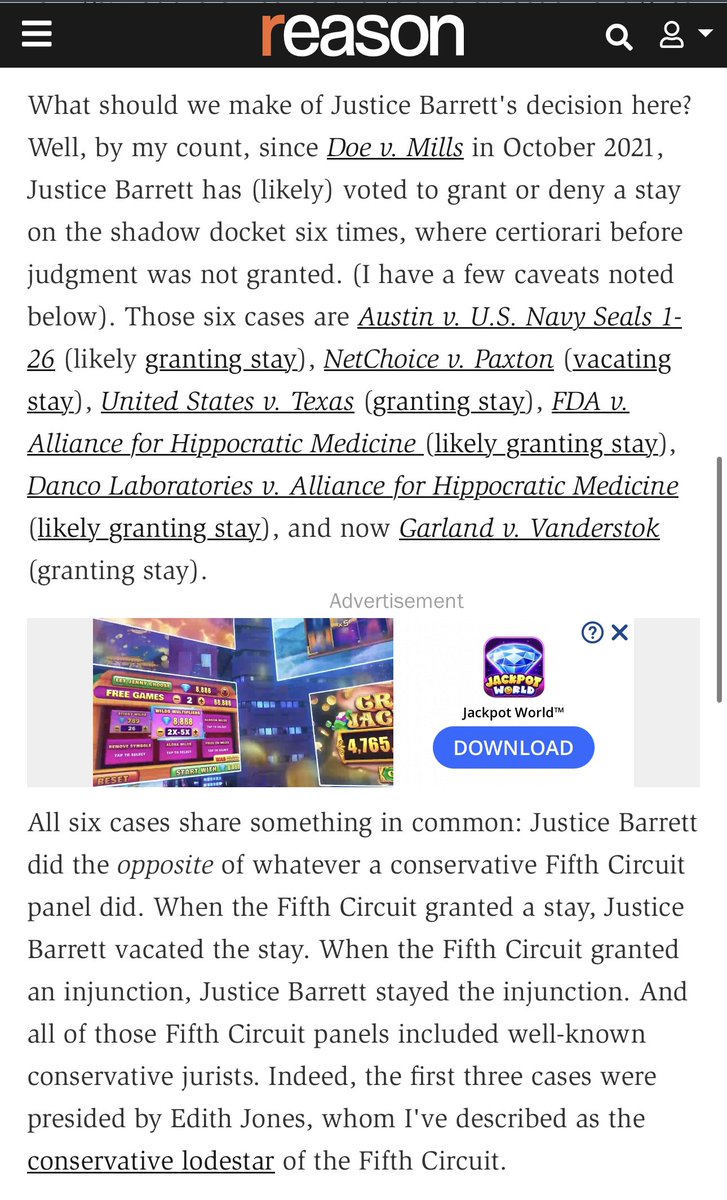#SCOTUS's last *two* opinions for the day, handed down simultaneously, are in the "faithless elector" cases:
Short version: "A State may enforce an elector’s pledge to support his party’s nominee—and the state voters’ choice—for President."
supremecourt.gov/opinions/19pdf…
Short version: "A State may enforce an elector’s pledge to support his party’s nominee—and the state voters’ choice—for President."
supremecourt.gov/opinions/19pdf…
There are two opinions because the Colorado case raises the same issue as the one decided in the Washington case.
The Court was unanimous as to the result, but Justice Thomas concurred only in the judgment (in an opinion joined in part by Justice Gorsuch).
The Court was unanimous as to the result, but Justice Thomas concurred only in the judgment (in an opinion joined in part by Justice Gorsuch).
No more opinions are expected today, so we still await the Trump tax cases, the ACA contraceptive mandate, the ministerial exception to Title VII, and the Oklahoma/Native American jurisdictional dispute.
We'll should hear later today when the Court will next hand down decisions.
We'll should hear later today when the Court will next hand down decisions.
Here's the Washington "faithless elector" ruling. (I accidentally linked to the Colorado one.):
supremecourt.gov/opinions/19pdf…
supremecourt.gov/opinions/19pdf…
• • •
Missing some Tweet in this thread? You can try to
force a refresh








